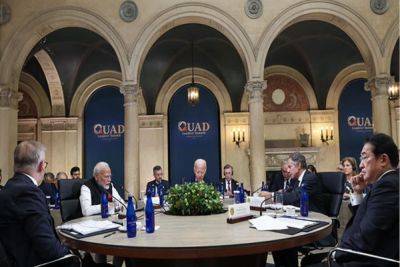India, US both need a stable Bangladesh
September 26, 2024
DHAKA – Before returning to Bangladesh and assuming the mantle of leading the interim government, Nobel Laureate Prof Muhammad Yunus, in an interview with India’s NDTV, stated that if Bangladesh becomes unstable, it will affect West Bengal, Myanmar, and the entire northeast India.
Now, West Bengal is bogged down in protests over a horrific case of rape and murder, with Chief Minister Mamata Banerjee declaring that she is “ready to resign.” The state of Manipur is on red alert as recent drone and rocket attacks have triggered a fresh wave of ethnic violence. Meanwhile, “Myanmar is plumbing the depths of the human rights abyss,” according to James Rodehaver, United Nations human rights chief of the Myanmar team. If the situation in the Bay of Bengal does not seem like a powder keg ready to explode, one must be truly blind.
However, the recent visit of a US delegation to Bangladesh offers some hope that the world is concerned with the evolving situation in the region. By the time this column is published, a bilateral meeting will have taken place between Chief Adviser Prof Yunus and US President Joe Biden on the sidelines of the UN General Assembly. On September 15, the inter-agency US delegation that met with the chief adviser included Brent Neiman, assistant secretary for the Department of Treasury; Donald Lu, assistant secretary of state for the Bureau of South and Central Asian Affairs; Änjali Kaur, USAID deputy assistant administrator for Asia; and Brendan Lynch, assistant US trade representative.
During the visit, USAID signed a development agreement worth over $200 million with the interim government to support Bangladesh in advancing development, strengthening governance, expanding trade, and







